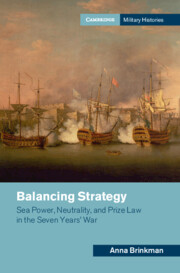566 results
The rise of the Spanish right during the Second Republic (1931–36). Social structures, Catholic associations, and conservative electoral mobilization
-
- Journal:
- Social Science History , First View
- Published online by Cambridge University Press:
- 06 May 2024, pp. 1-30
-
- Article
-
- You have access
- Open access
- HTML
- Export citation
8 - Death Comes for the Ambassador
- from Part III - The Spanish Case Studies
-
- Book:
- Balancing Strategy
- Published online:
- 25 April 2024
- Print publication:
- 02 May 2024, pp 176-203
-
- Chapter
- Export citation
6 - Kings and Merchants
- from Part III - The Spanish Case Studies
-
- Book:
- Balancing Strategy
- Published online:
- 25 April 2024
- Print publication:
- 02 May 2024, pp 129-148
-
- Chapter
- Export citation
Conclusion
-
- Book:
- Balancing Strategy
- Published online:
- 25 April 2024
- Print publication:
- 02 May 2024, pp 245-268
-
- Chapter
- Export citation
7 - Forging Arguments
- from Part III - The Spanish Case Studies
-
- Book:
- Balancing Strategy
- Published online:
- 25 April 2024
- Print publication:
- 02 May 2024, pp 149-175
-
- Chapter
- Export citation

Balancing Strategy
- Sea Power, Neutrality, and Prize Law in the Seven Years' War
-
- Published online:
- 25 April 2024
- Print publication:
- 02 May 2024
Ideology and Party Positions on Gender Issues in Spain: Evidence from a Novel Data Set – ADDENDUM
-
- Journal:
- Politics & Gender , First View
- Published online by Cambridge University Press:
- 18 April 2024, p. 1
-
- Article
- Export citation
2 - Opening Fire
-
- Book:
- Menacing Tides
- Published online:
- 11 April 2024
- Print publication:
- 18 April 2024, pp 56-107
-
- Chapter
- Export citation
Palygorskite-Sepiolite Clays of Lebrija, Southern Spain
-
- Journal:
- Clays and Clay Minerals / Volume 30 / Issue 3 / June 1982
- Published online by Cambridge University Press:
- 02 April 2024, pp. 191-199
-
- Article
- Export citation
Biodiversity, multi-level governance, and policy implementation in Europe: a comparative analysis at the subnational level
-
- Journal:
- Journal of Public Policy , First View
- Published online by Cambridge University Press:
- 27 March 2024, pp. 1-27
-
- Article
-
- You have access
- Open access
- HTML
- Export citation
11 - The Reception of the Protestant Reformation in the Iberian Peninsula
-
-
- Book:
- Reformations Compared
- Published online:
- 14 March 2024
- Print publication:
- 21 March 2024, pp 242-265
-
- Chapter
- Export citation
The impact of meteorological factors on tuberculosis incidence in Spain: a spatiotemporal analysis
-
- Journal:
- Epidemiology & Infection / Volume 152 / 2024
- Published online by Cambridge University Press:
- 20 March 2024, e58
-
- Article
-
- You have access
- Open access
- HTML
- Export citation
Chapter 8 - Spain in the Cosmos of Richard Wagner
- from I - Place
-
-
- Book:
- Wagner in Context
- Published online:
- 14 March 2024
- Print publication:
- 14 March 2024, pp 81-92
-
- Chapter
- Export citation
The emergence of financial capital in the health insurance business in Europe: The case of Spain in the last fifty years
-
- Journal:
- Revista de Historia Economica - Journal of Iberian and Latin American Economic History , First View
- Published online by Cambridge University Press:
- 05 March 2024, pp. 1-26
-
- Article
-
- You have access
- Open access
- HTML
- Export citation
The role of industrialisation in education expenditure: municipal budgets in Biscay, 1860-1910
-
- Journal:
- Revista de Historia Economica - Journal of Iberian and Latin American Economic History / Volume 42 / Issue 1 / March 2024
- Published online by Cambridge University Press:
- 11 March 2024, pp. 59-90
- Print publication:
- March 2024
-
- Article
-
- You have access
- Open access
- HTML
- Export citation
Patentes, contratos de defensa e innovación en el sector de armamento militar en España, 1878–1939
-
- Journal:
- Revista de Historia Economica - Journal of Iberian and Latin American Economic History / Volume 42 / Issue 1 / March 2024
- Published online by Cambridge University Press:
- 05 April 2024, pp. 121-152
- Print publication:
- March 2024
-
- Article
-
- You have access
- Open access
- HTML
- Export citation
15 - Living Standards, Inequality and Consumption, 1500–1800
- from Part II - Globalization and Enlightenment, 1500–1800
-
-
- Book:
- An Economic History of the Iberian Peninsula, 700–2000
- Published online:
- 22 February 2024
- Print publication:
- 29 February 2024, pp 385-408
-
- Chapter
- Export citation
18 - Economic Growth and the Spatial Distribution of Income, 1800–2000
- from Part III - Industrialization and Catching Up, 1800–2000
-
-
- Book:
- An Economic History of the Iberian Peninsula, 700–2000
- Published online:
- 22 February 2024
- Print publication:
- 29 February 2024, pp 473-495
-
- Chapter
- Export citation
14 - Science, Knowledge and Technology, 1500–1800
- from Part II - Globalization and Enlightenment, 1500–1800
-
-
- Book:
- An Economic History of the Iberian Peninsula, 700–2000
- Published online:
- 22 February 2024
- Print publication:
- 29 February 2024, pp 358-384
-
- Chapter
- Export citation
20 - Economic Policies and Institutions
- from Part III - Industrialization and Catching Up, 1800–2000
-
-
- Book:
- An Economic History of the Iberian Peninsula, 700–2000
- Published online:
- 22 February 2024
- Print publication:
- 29 February 2024, pp 519-545
-
- Chapter
- Export citation



